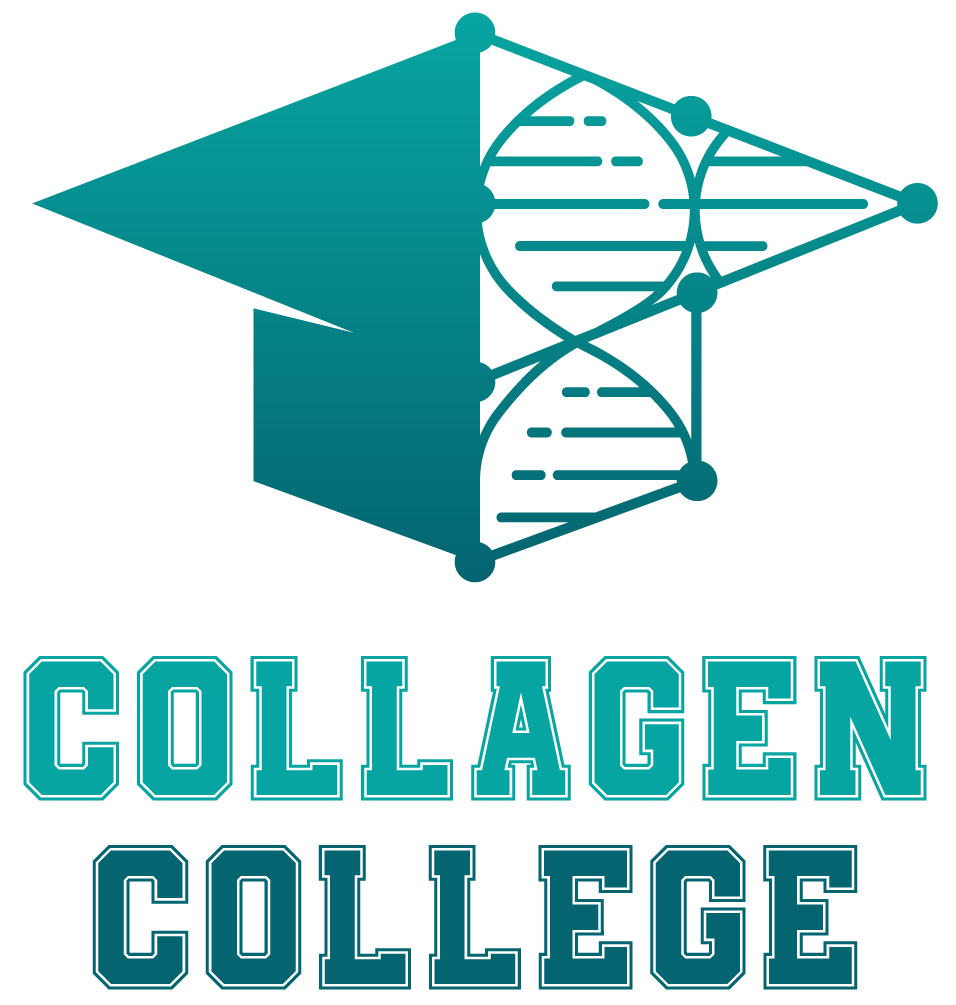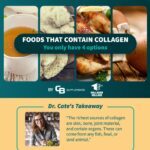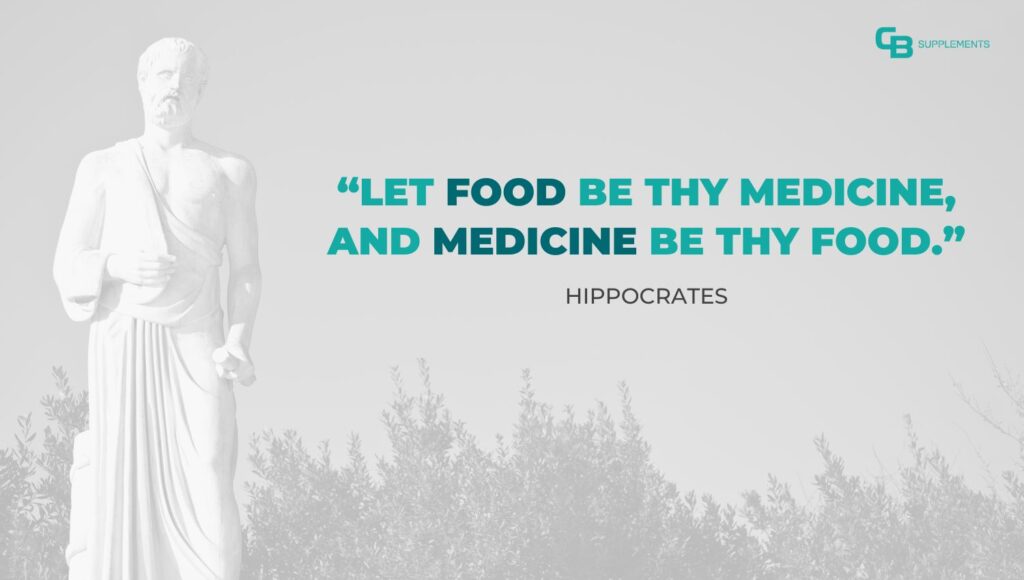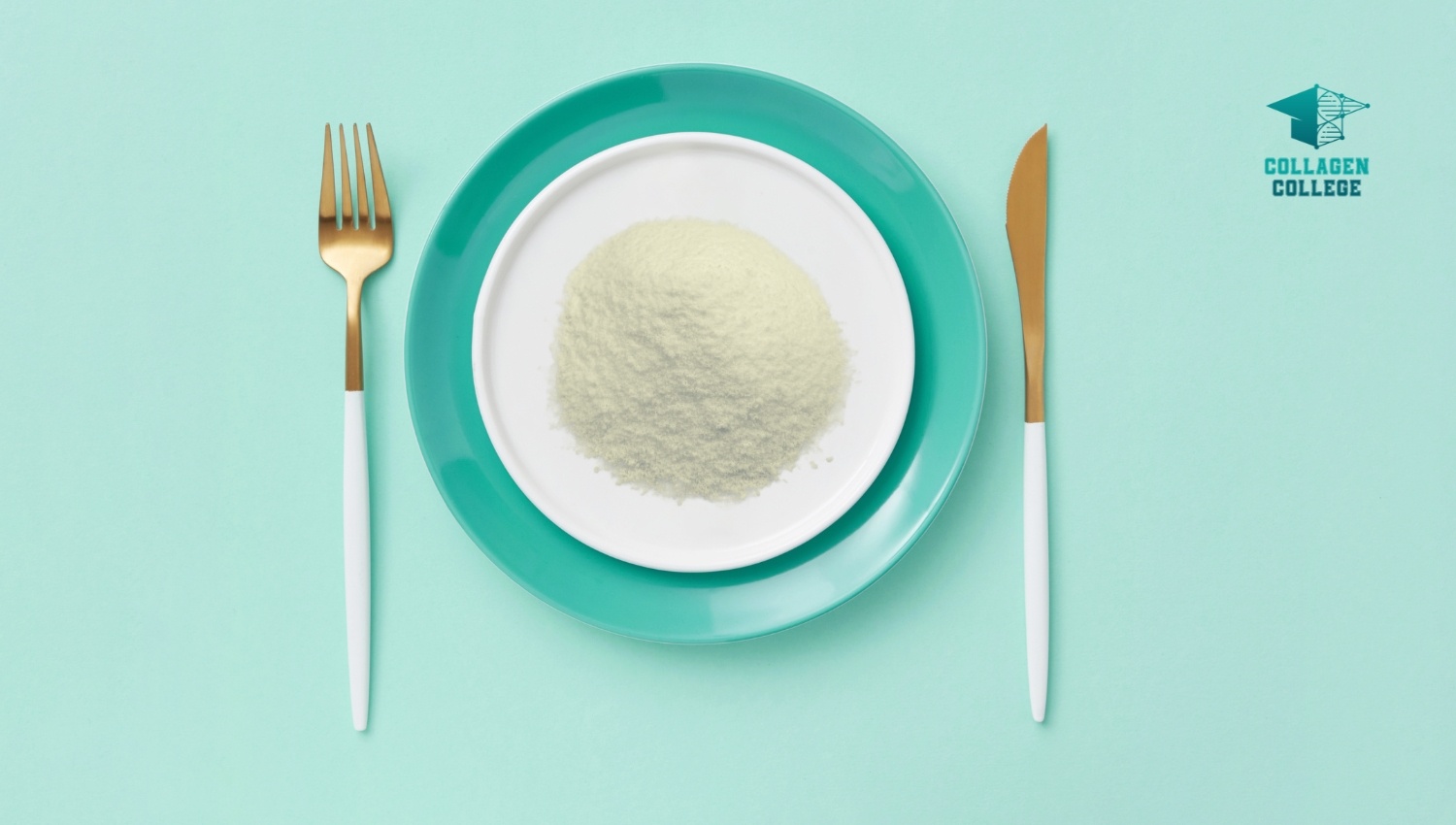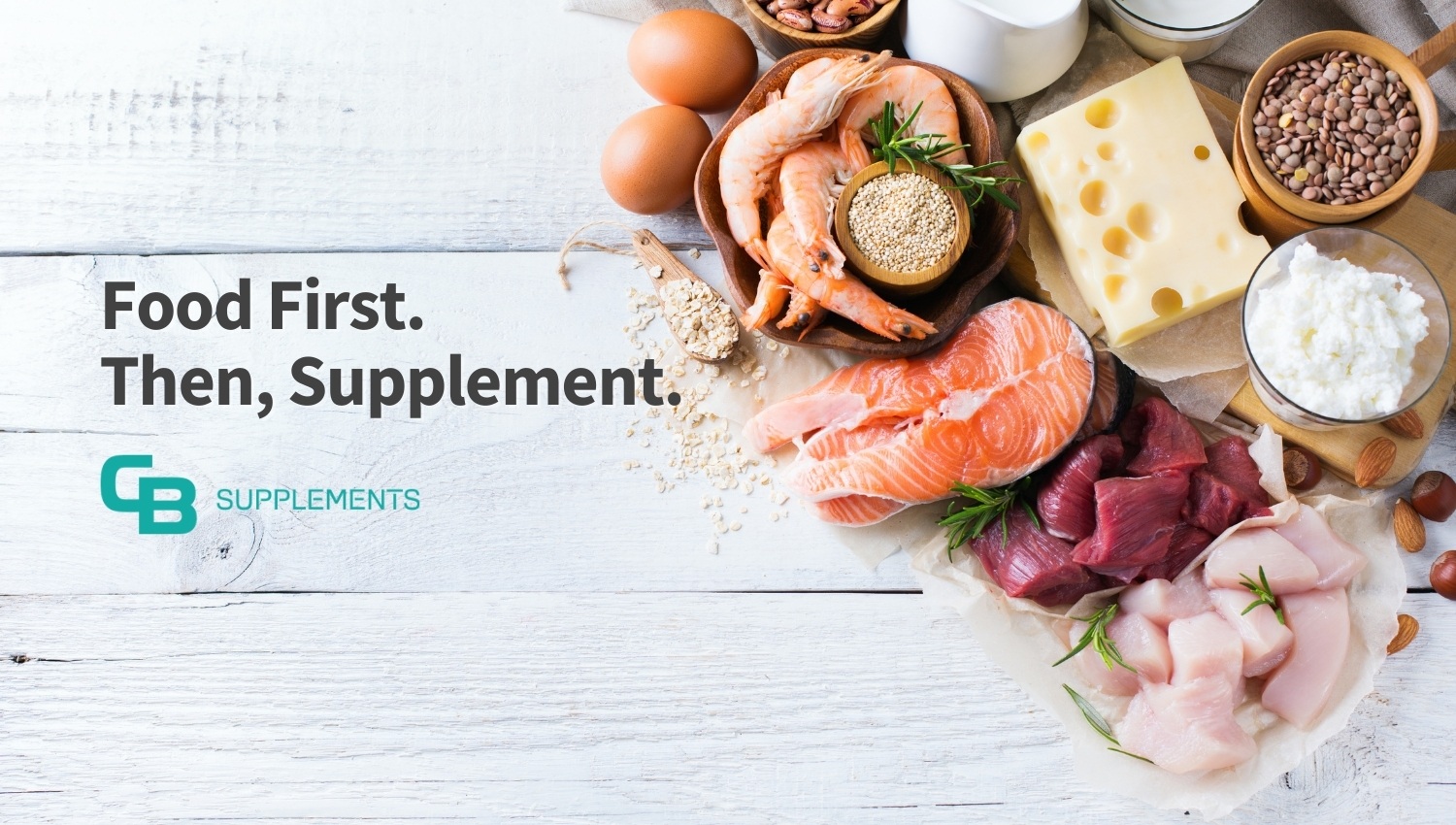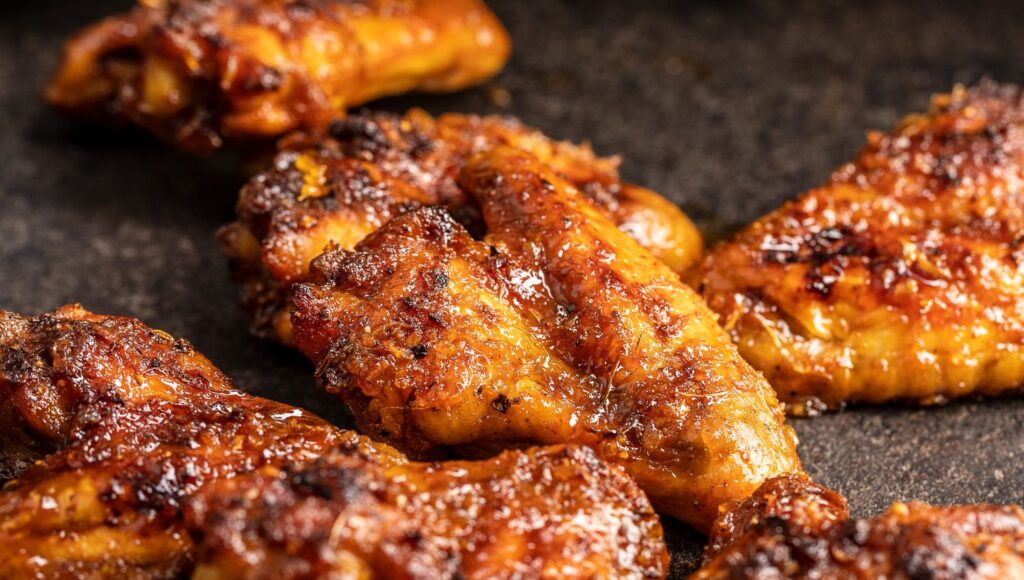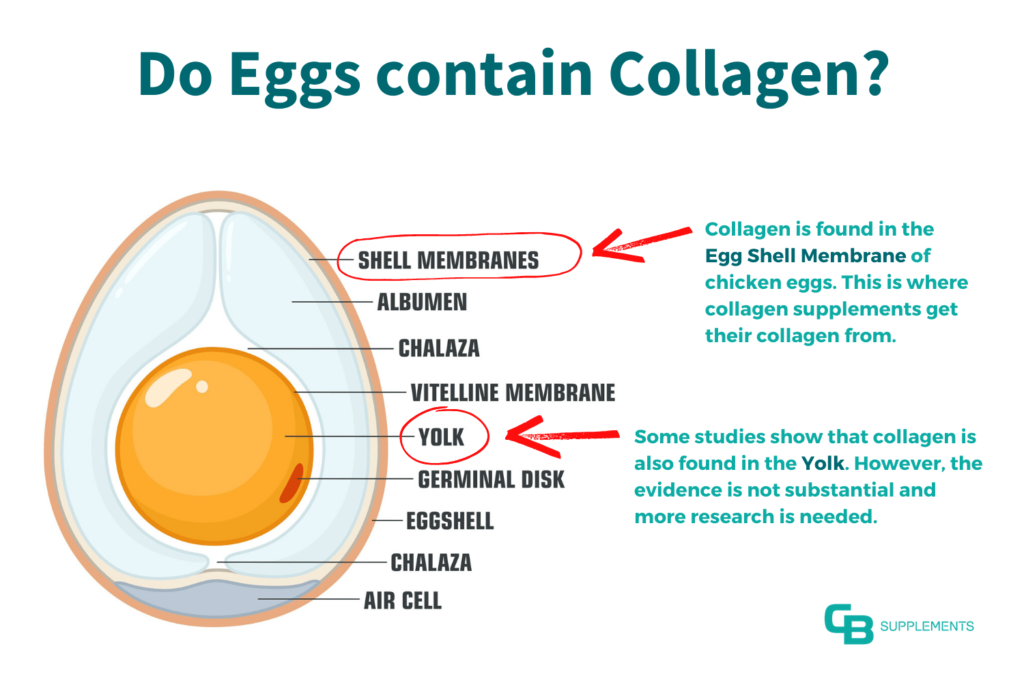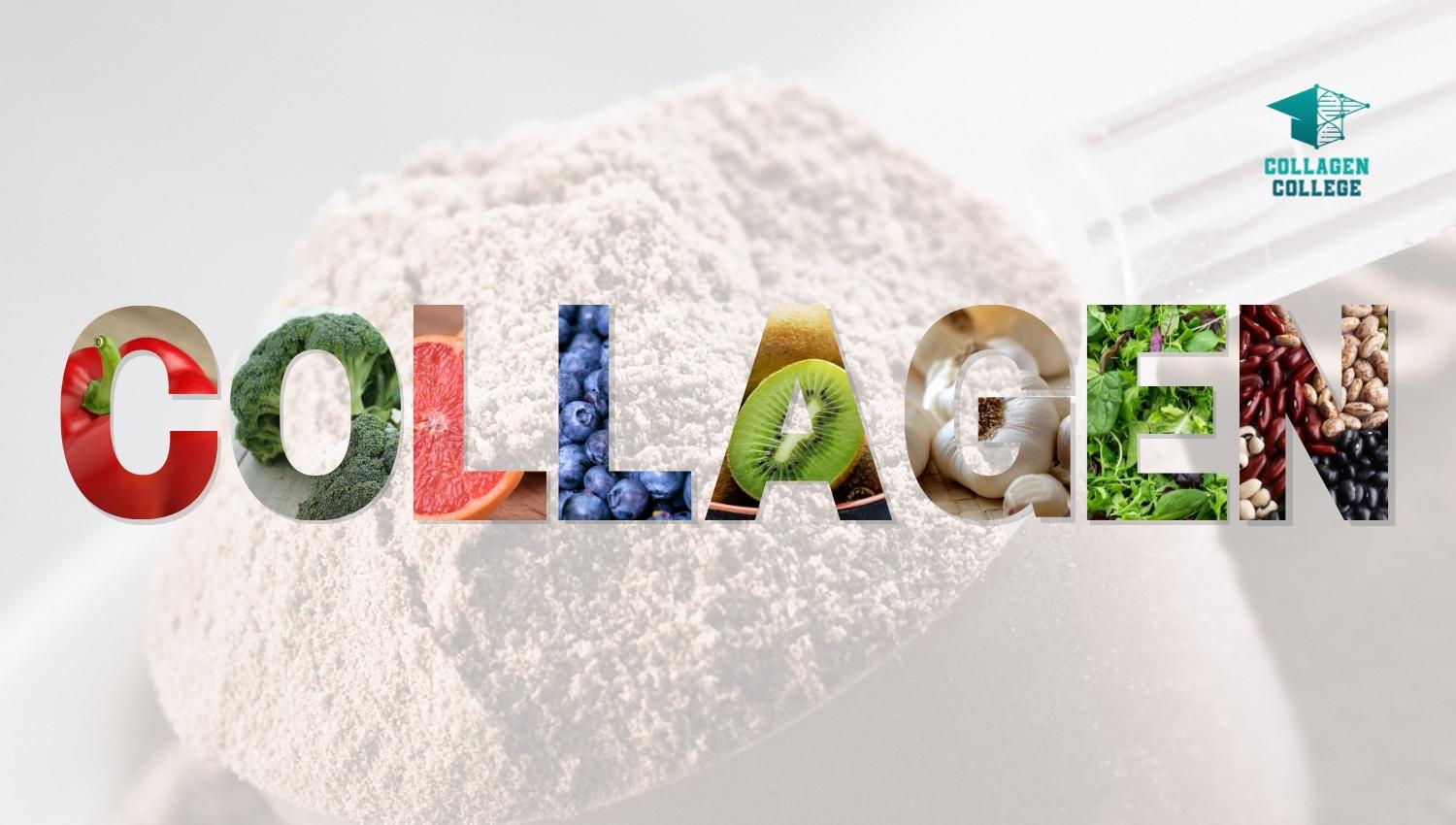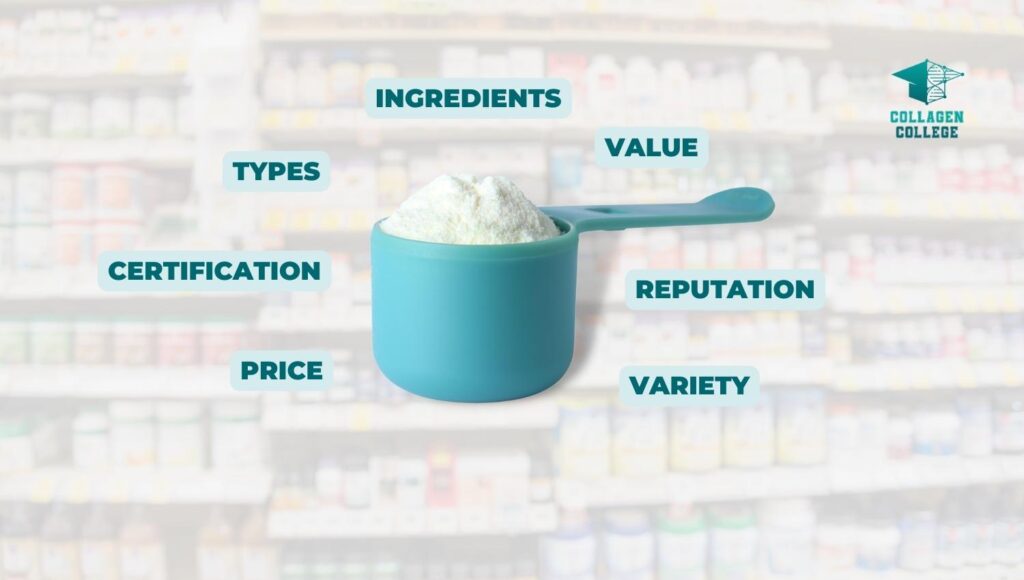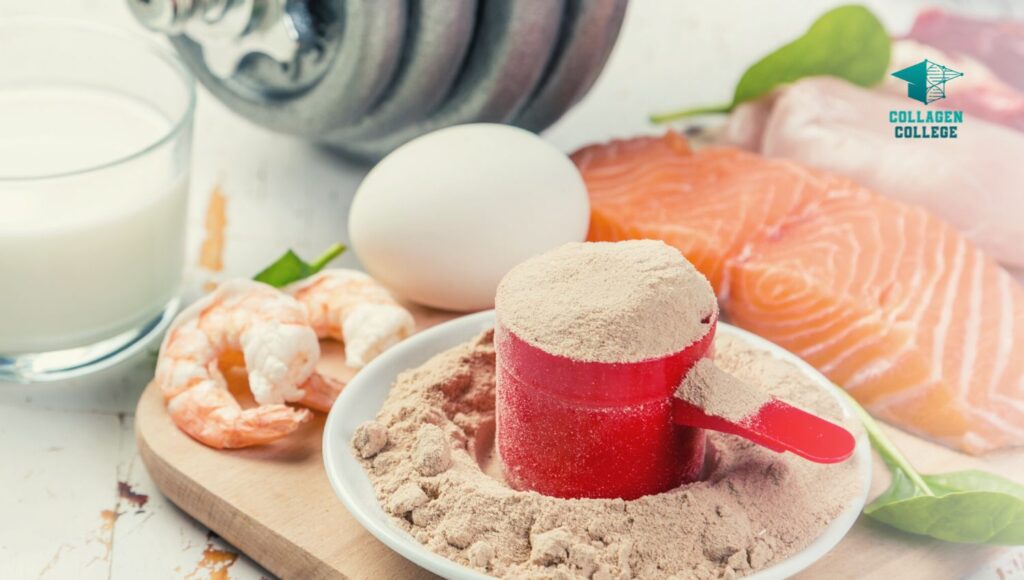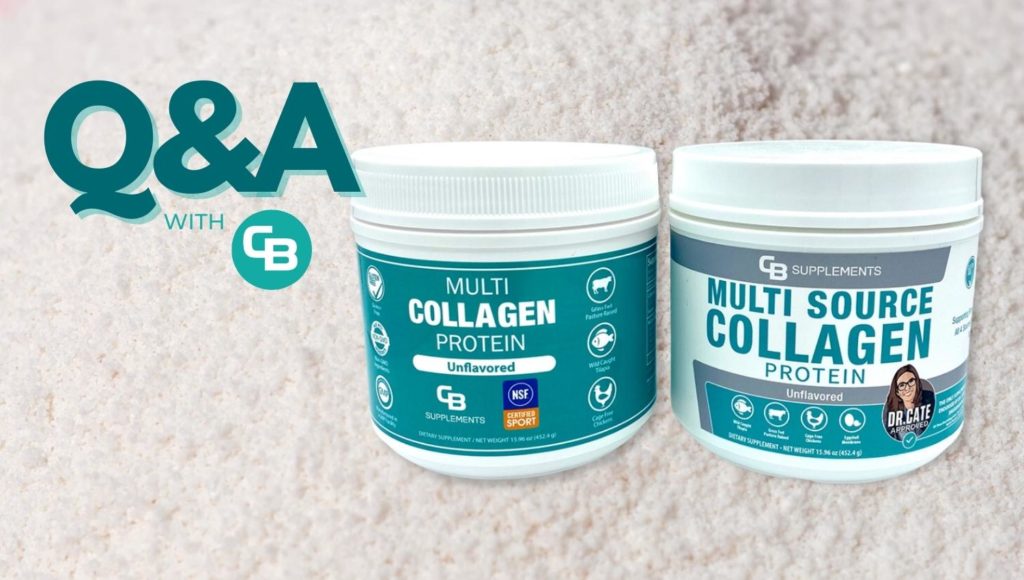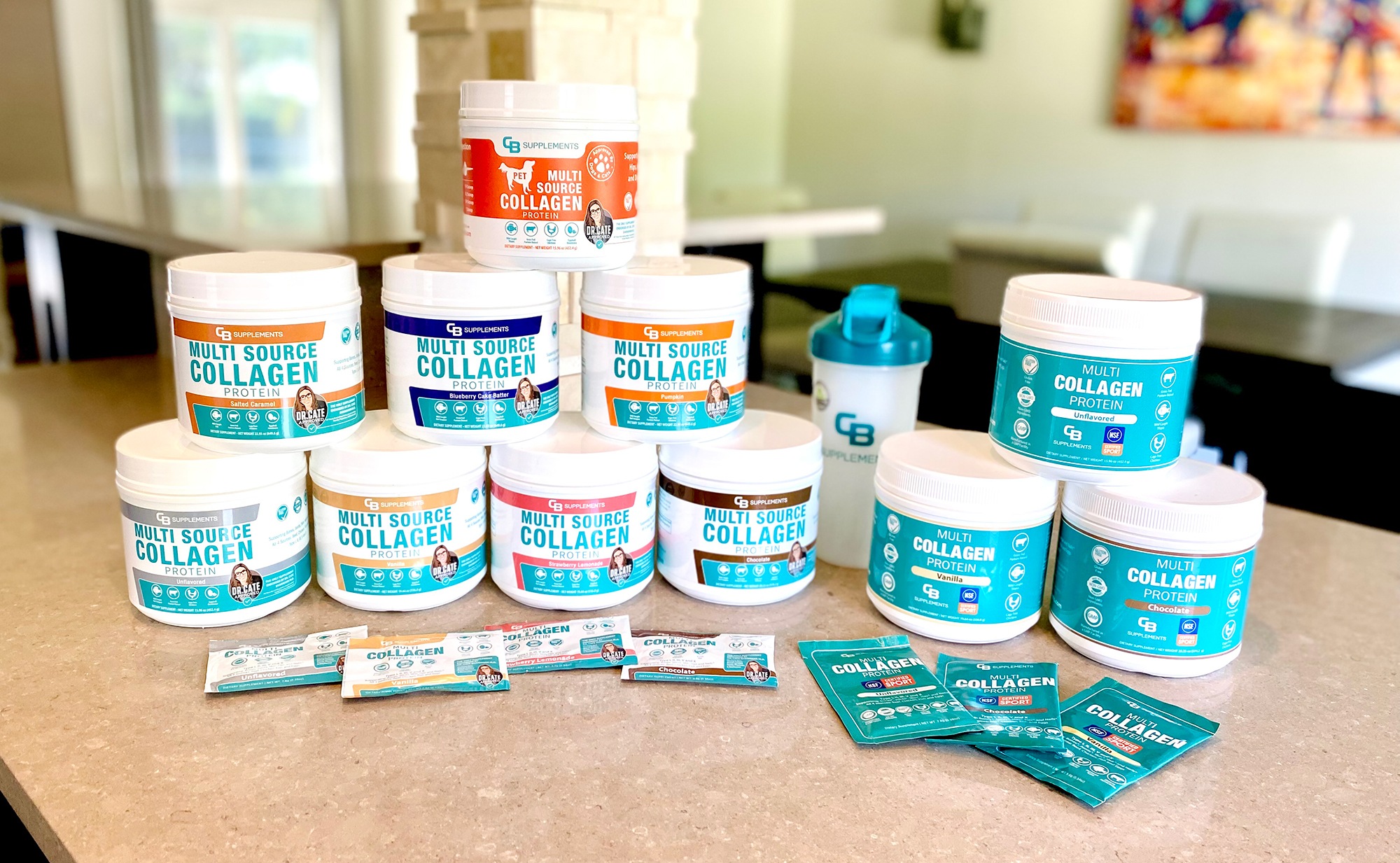Food is Medicine
We tend to forget this in our pro-medicine, give me a pill society we live in today. But Hippocrates, a famous Greek physician often called the “Father of Medicine”, had it all figured out 2,400 years ago.
Let food be thy medicine, and medicine be thy food.
— Hippocrates
Yes, there is some controversy around whether or not Hippocrates actually said this, and many have interpreted his writings to say something different, but I think you get my point.
In today’s world, we look at food in two ways:
- Fuel (to get us through the next 2-4 hours before we can eat again)
- Indulgence (mmm, cake)
We have reduced food to a glob of calories solely consumed for our pleasure because it tastes good (indulgence) or to give us fuel to operate through the day (because we feel we’ll die by skipping a meal).
We already debunked the idea that fasting is bad for you, so you now know you really don’t “need” food for fuel since we have a lot stored in our bodies.
And if you don’t think it matters what we eat, I dare you to eat Doritos, Oreos, and french fries, drink Coke, and top it off with a McDonald’s apple pie or Sour Patch Kids every day and see what happens to your health. (Actually, please don’t — just keep reading.)
So, now that we all agree that food is a huge contributor to our overall health and not just fuel (thank you for seeing my point), let’s touch on a detail before we get into the 4 sources of collagen.
Point of Clarity: Contains Collagen vs Boosts Collagen Production
These 4 foods contain collagen.
As in, if your only mission in the next 24 hours was to eat or drink your RDA of collagen (we estimate 10-40 grams), then these are the foods high in collagen you’d need to grab at your local grocery store or find in nature to consume.
This is NOT a listing of foods that help your body:
- Produce…collagen production
- Increase…collagen production
- Boost…collagen production
- Synthesize…collagen production
They’re not foods that ‘may’ (and that is a strong “may”) help you produce/increase/boost/synthesize collagen. As we explored in how to increase collagen, the only surefire way to replenish your collagen — that’s backed by evidence — is to EAT collagen-rich foods and/or supplement.

So if a source (like this one) says a red pepper is a “collagen-rich food”, what they’re really saying is that a red pepper helps with the production of collagen because it contains loads of Vitamin C. And for the record, vitamin C is important to collagen, but so is every other vitamin in collagen synthesis.
Though these sources may mean well, they’re not saying it well or clearly. But, we’re here to clear it up with the real science and nutrition behind the foods that contain collagen protein.
Intro to Collagen Sources
Goodness, there’s a lot of confusion around this. Everyone seems to be saying the same thing about where and how to get collagen from food. Everything from bone broth (the easy choice) to…berries? Um.
Whenever you find yourself on the side of the majority, it is time to pause and reflect.
— Mark Twain
Pause and reflect we will, Mr. Twain. And also consult with our M.D. and biochemist, Dr. Cate. Below are the accurate and undeniable sources of collagen, from a biochemist, and there are only four.
4 Sources of Collagen
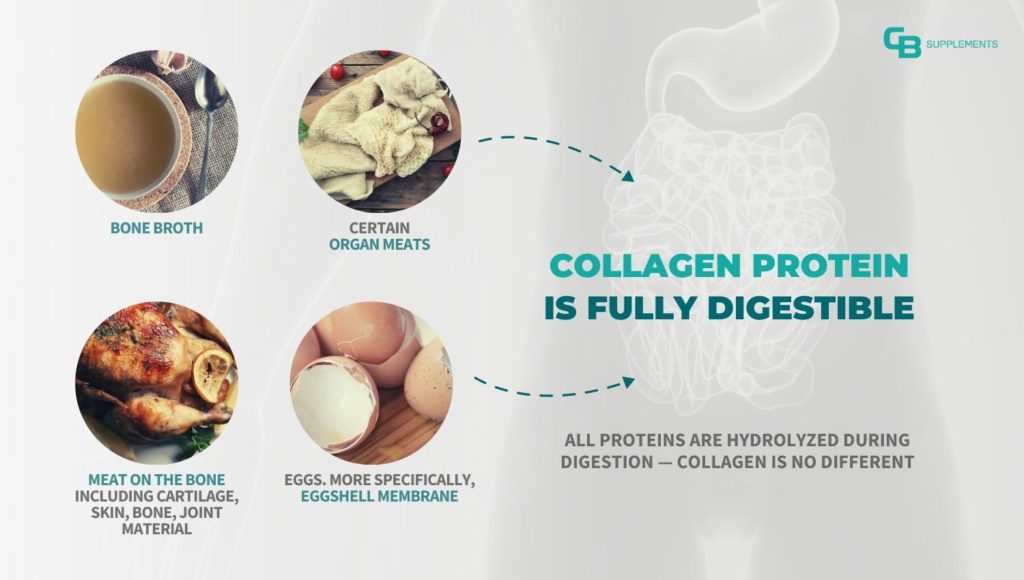
The sources of collagen are limited, but very accessible in grocery stores and online. There are only 4 sources, or food groups, that contain collagen protein which are:
-
- Bone Broth
- Certain Organ Meats such as Tripe
- Meat on the Bone including Cartilage, Skin, Bone, Joint Material
- Eggs, more specifically, eggshell membrane
That’s it. No, you can’t get collagen from green leafy veggies (more on that soon).
1. Bone Broth
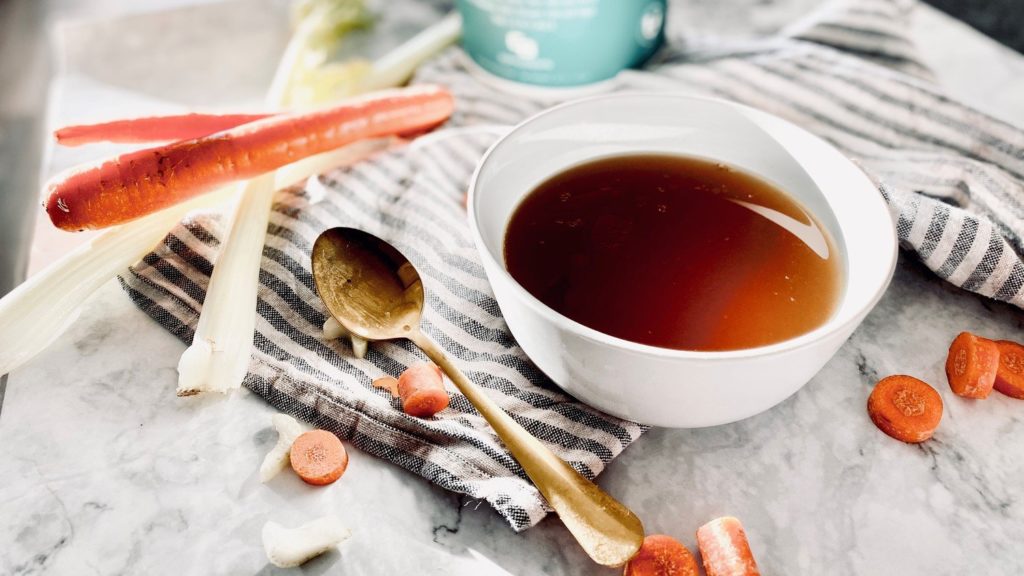
Bones are a matrix of collagen with calcium and phosphorus making up the hard middle areas.
Think of collagen as the spider web and calcium/phosphorous fill in the holes of the web — now you have an impenetrable web. That’s your bones.
So what could be better than stewing down pastured animal bones for hours (or days) to suck out all the awesome nutrients? Yes, you get lots of collagen, calcium, and phosphorous from the bones, but you also get magnesium, glucosamine, chondroitin, amino acids, glycosaminoglycans, and proteoglycans.
Hey Doctor Cate, what are glycosaminoglycans and proteoglycans?
They’re quite possibly the world’s best lubricants, which is very important in a joint–since joints are all about movement. These compounds can glide over each other, cushioned by magnetic charge clouds, and they have a very powerful ability to hold water. This property comes from their unique molecular structure: amino acids complexed with sugar molecules.
— Dr. Cate, M.D.
I should never say what I am about to say, especially since we make our living selling multi-collagen at CB Supplements, but here it goes. I would always recommend someone eat the whole food product over taking a supplement.
Meaning, I would much rather you (potentially a customer of CB Supplements multi-collagen) drink 8-16oz of bone broth every day than take our supplement. However, bone broth is expensive to buy, is a labor of love to make yourself, and has a very particular taste.
Sometimes, it’s just easier to throw a scoop of CB Supplements multi-collagen in your hot cup of coffee each morning. And don’t worry, heat does not destroy collagen.
Here are some great brands of bone broth:
2. Certain Organ Meats
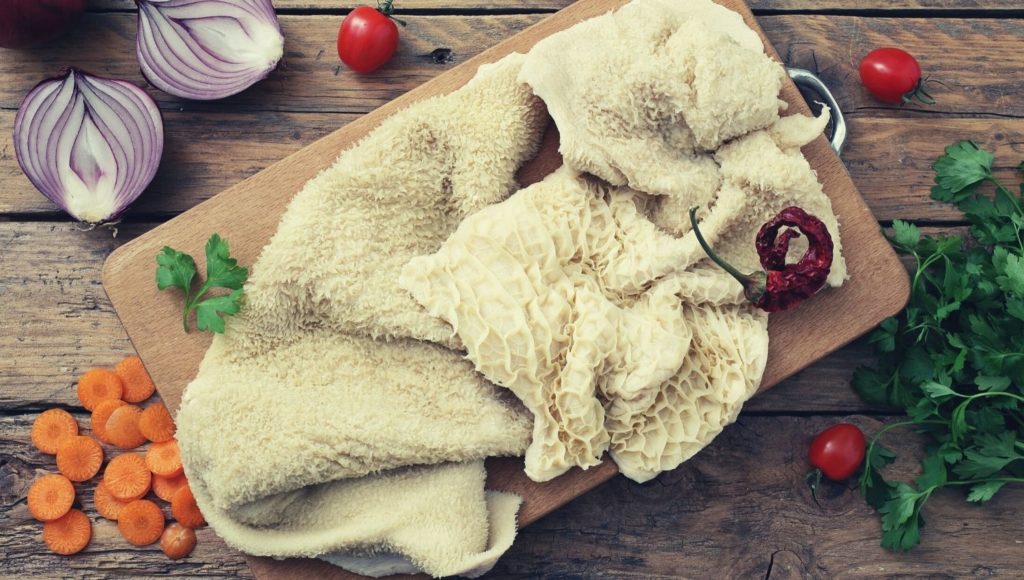
Who doesn’t love heart, kidney, eyeballs, and tripe? For you organ meats newbies, tripe is the first or second stomach of a cow or other ruminant used as food. It’s LOADED with collagen!
Organs with the most collagen
Organs with the highest concentration of collagen will be the ones with the most collagenous valves, tendons, and cartilage-rich structures such as these organ meats:
- Tripe
- Heart
- Intestines
- Kidneys
- Lungs (illegal to buy and eat in the U.S.)
- Trachea (popular in organ supplements)
- Eyeballs (Dr. Cate is the only person I know who’s eaten eyeballs)
These foods have fallen out of favor in America over the past hundred years or so, but did you know they were staples of our ancestors’ diet for hundreds of thousands of years of evolution? Do you think when we were hunter-gatherers and made a kill, we’d utter these words:
Hey Frank, all I want is the muscle meat — throw away the rest.
— Said no human before 1900
No, we ate everything.
Organ meats contain the highest amount of fat, which is good for you (that is another topic for a later date), and remember what organs are made of? Yup, collagen. Organ meats typically have 1.5-3x the amount of collagen than muscle meat.
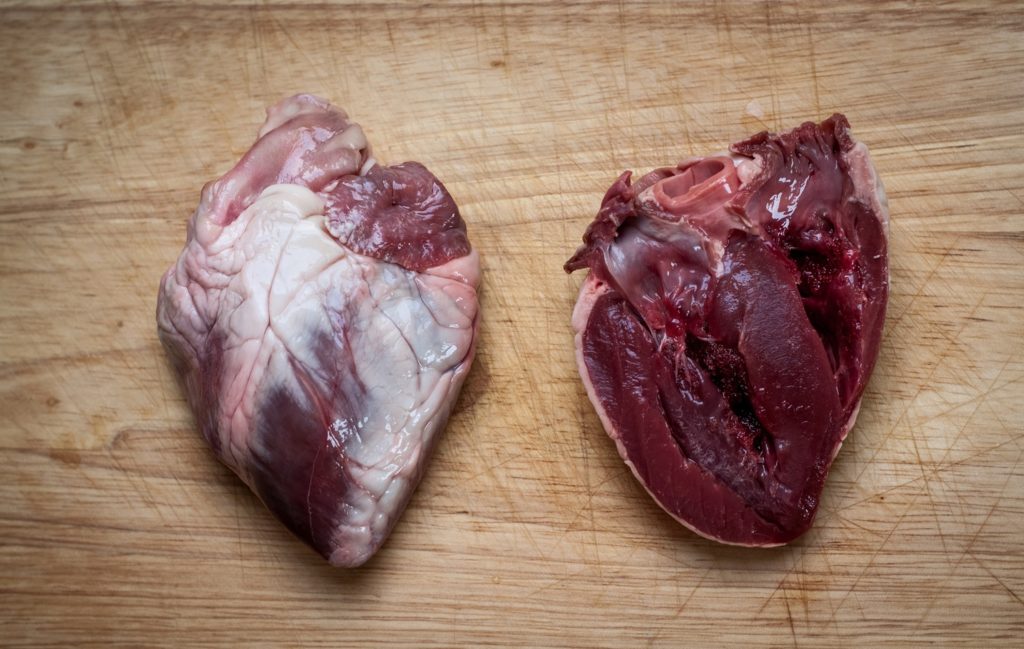
Per Sarah Ballantyne, a medical biophysicist, the heart has about double the amount of collagen:
Heart also contains twice as much collagen and elastin than regular meat (which means it is rich in the amino acids glycine and proline), which are essential for connective tissue health, joint health and digestive health.
— Sarah Ballantyne, PhD
The Paleo Mom
But don’t ask me how to cook a cow heart, here are 4 ways to cook and eat it.
3. Meat on the Bone including Cartilage, Skin, Bone, Joint Material
Meat on the bone is 1 of the 4 pillars of Dr. Cate Shanahan’s “Human Diet” which is detailed in her book Deep Nutrition.
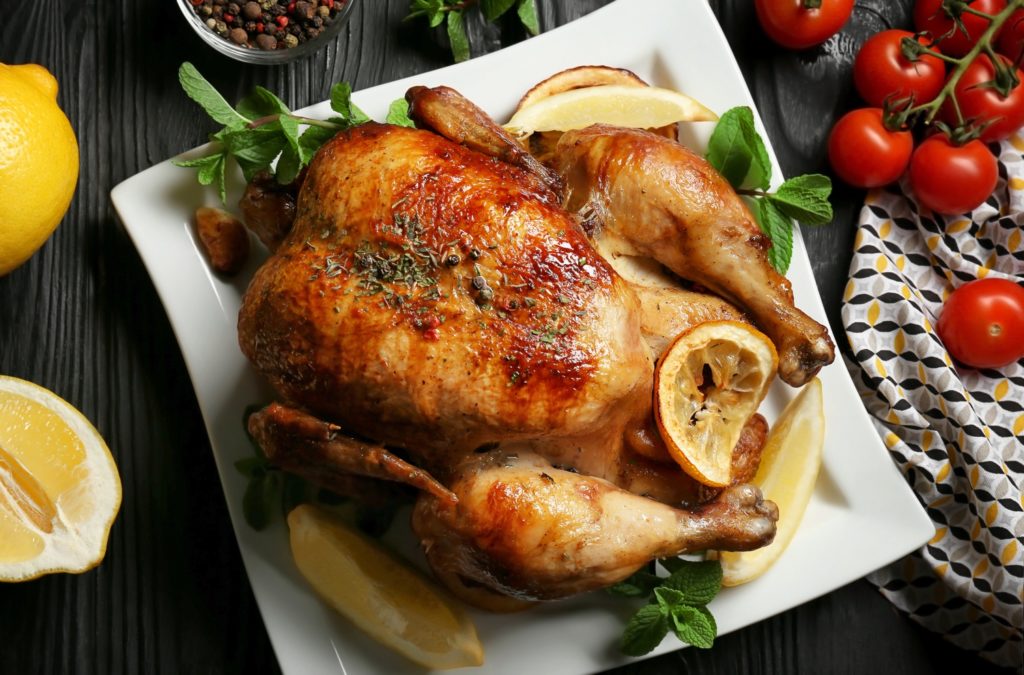
The third source of collagen on our list — meat on the bone including cartilage, skin, bone, joint material — is a complex food group so we’ve broken it up into these mini topics:
- Collagen in Meat
- Beef
- Fish
- Chicken
- Nose and Ear Cartilage, Skin, Bone, Joint Material
- Pork Rinds
- Chicken Wings
Is there collagen in meat?
Just a little. And it depends. Let me explain.
Collagen can be found in meat such as:
- fish
- chicken legs
- bone-in ribeyes
- lamb shanks
- pork ribs
- dinosaurs 🦖 (j/k, but not really)
So if you cook fish with the skin, bones, and everything intact, what do you think will make it on your fork when you take a bite? Good guess, collagen. This is the same for chicken, beef — any animal really. Whoever thought of the idea that we need to cut the bones off of ribeyes and eat boneless/skinless chicken breasts should be put in jail. Ok, maybe not jail, but like why in the world would you cut off and throw away the most nutritious part of the animal?
Collagen in Beef
Let’s focus on collagen in beef here, one of the “big three” when it comes to meat consumption popularity (the other two being chicken and pork). When we say there’s “just a little collagen in meat”, exactly how much is a little? Well, let’s ask one of the biggest carnivores we know.
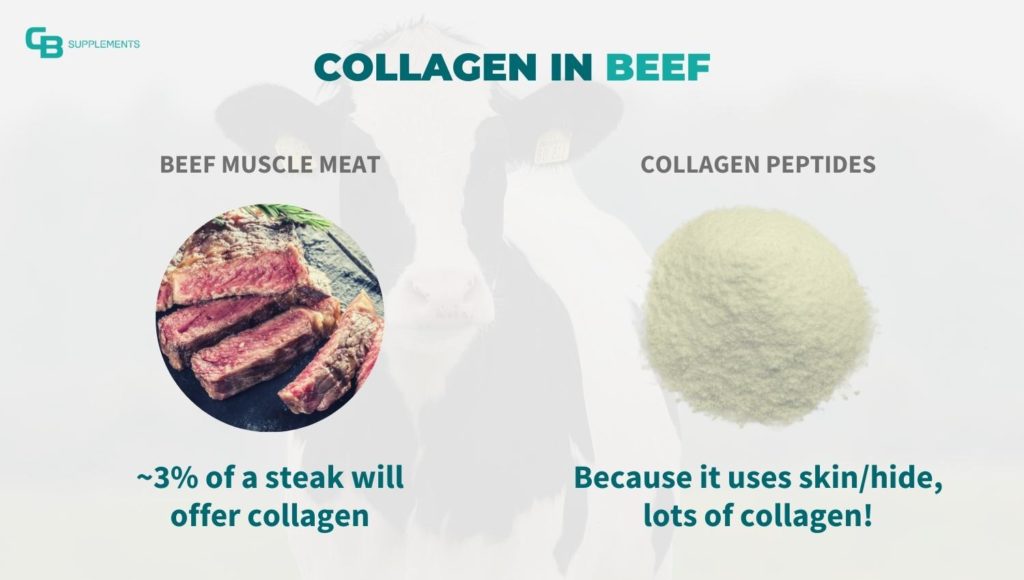
Shawn Baker, M.D., author of The Carnivore Diet, stated in our MeatRx podcast interview that collagen only makes up about 3% of beef steak. So yes, meat on the bone does contain collagen, but there are plenty of other food sources that might be a better option if you’re looking for collagen-rich foods!
With that said, beef is one of the main ingredients of collagen peptides — in particular, their skin/hide. It’s rich in type I and III collagen and nearly every collagen supplement in the world will use beef (aka bovine) as a source.
Collagen in Fish
Similar to beef, it’s about the skin. You won’t find collagen in fish meat, but rather in the skin, scales, and bones.
So if you’re looking to get your collagen from fish, which is rich in type I and III collagen, eat fish with the skin intact. When it comes to supplements, marine collagen is widely popular and fish skin is the main source.
Collagen in Chicken
Don’t be bringing your skinless chicken breast up in here. See a theme developing? If you want collagen from chicken meat, you must eat it with the skin intact as that’s where the collagen is found. That’s why chicken wings made this list, they give you access to other wonderful collagen-rich parts such as cartilage and joint material in every bite!
Speaking of those “parts”, let’s learn more about these uncommon sources of collagen.
Nose and Ear Cartilage, Skin, Bone, Joint Material
I’d be lying if I said I ate this stuff every day.
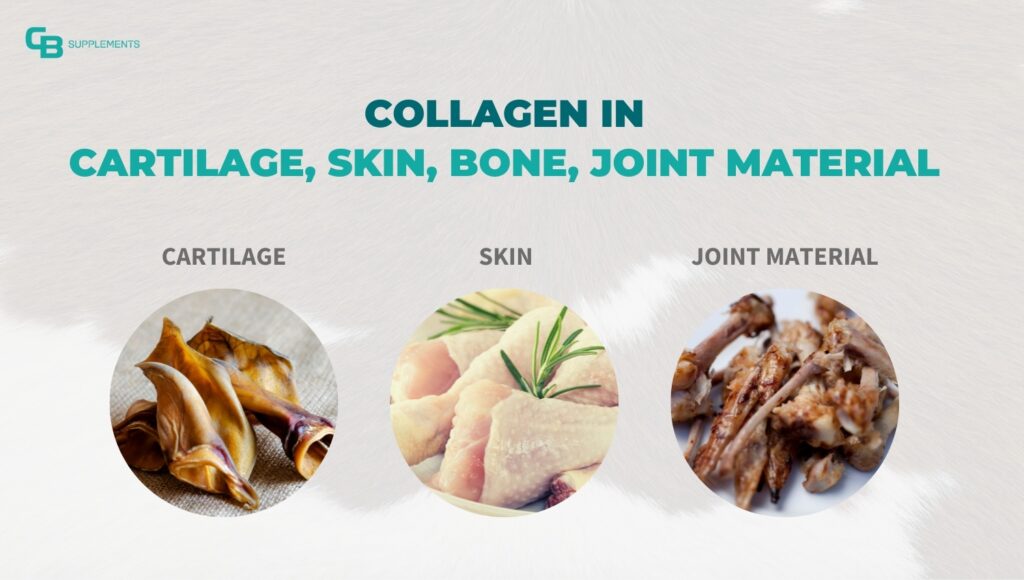
However, you can actually get lots of awesome nutrients from simply eating the skin of the chicken or fish for example. And many people are eating joint material, cartilage, and connective tissue without even knowing while eating meat on the bone.
My recommendation for eating these uncommon sources of collagen protein are to:
- buy it in desiccated pills (try Heart & Soil)
- ask your grandmother to cook it for you
- go to the local butcher and buy beef tallow or lard and fry the heck out of that ear (it may taste like a tater tot?)
Speaking of tater tots. That makes me think of chips.
Do Pork Rinds have collagen?
Most chips are terrible and have nothing to do with collagen, but guess what does? It’s the closest thing to a chip we have in the health community.
Pork rinds! I crush pork rinds, they are one of God’s gifts to us mortals.
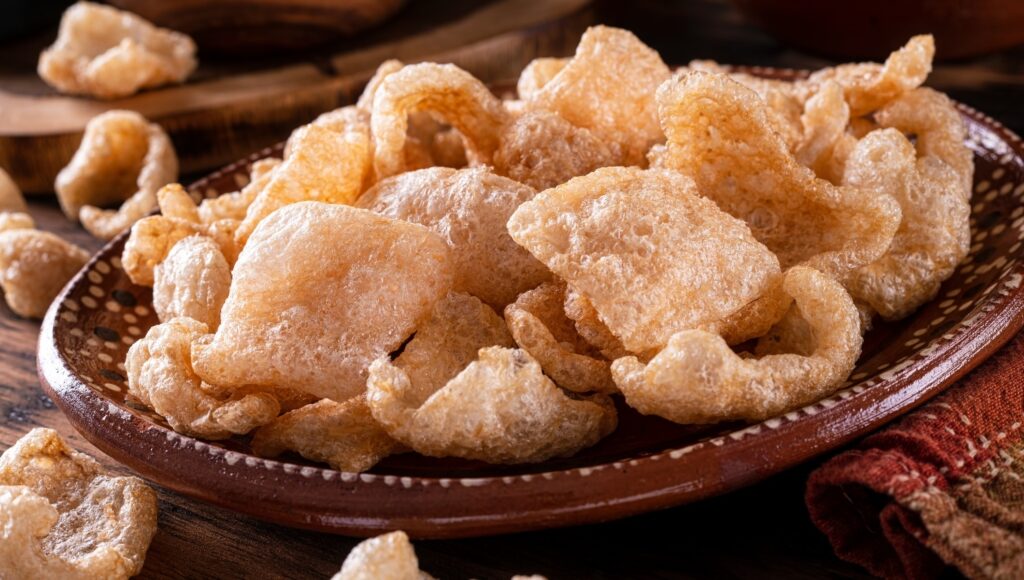
Pork rinds are not only a culinary treat, but they’re loaded with collagen because it’s the skin of pigs. And animal skin is an excellent source of collagen protein rich in type I collagen.
Tip for buying pork rinds
Make sure they are cooked in their own fat and not horrible vegetable oils. Do not buy pork rinds from the random gas station — those are cooked in soybean oil and will make you spontaneously combust. Check out these brands for the real thing:
Do chicken wings have collagen?
Do, um, chicken wings count? Asking for a friend.
In America, we love wings and have eating competitions for wings. Don’t roll your eyes at me. I know you have tried to eat 50 or 100 wings in one sitting, don’t lie. I ate 74 once.
When you take a huge bite of chicken wing, guess what you’re going to get along with that delicious chicken meat? That’s right, collagen. You’re going to be eating many joints in the wing, therefore you get cartilage, joint material (tendons/ligaments), and skin. So yes, chicken wings are considered meat on the bone and contain collagen!
Unfortunately, most chicken wings served in restaurants are cooked in soybean oil or some other vegetable/seed oil. If you buy chicken wings and grill them yourself, you rock. If you fry them in lard or tallow, we bow to you.
4. Eggs
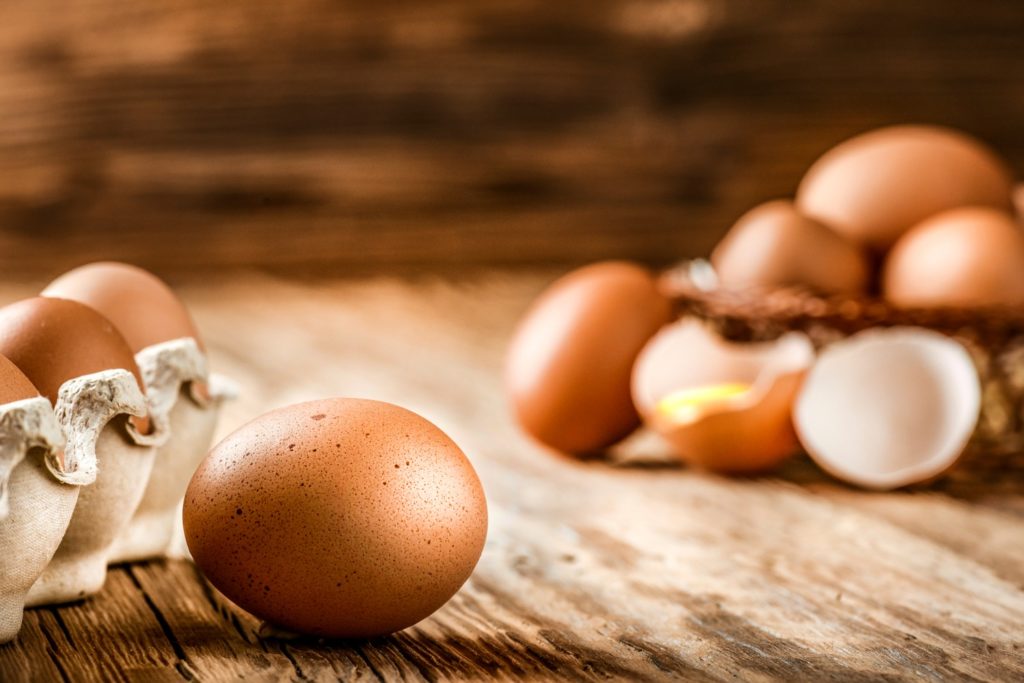
Outside of sardines, eggs might be the healthiest and most complete food on the planet.
Remember my comment about shellfish and that you’re kind of eating an entire animal so it technically counts as eating organ meat? Well, an egg turns into a living bird in like 21 days. That little brown/white ball filled with white matter and a yellow yolk develops a heart, a beak, feet, and eyeballs, in 21 days. That is incredible! No wonder snakes eat eggs whole — talk about the ultimate nutritional powerhouse of a food.
Don’t even get me started on the documentary What the Health and its crazy claims about eggs. (Yes we link to opposing views and don’t shy away from them.)
Moving on.
Do Eggs Contain Collagen?
Of the 3 main parts of the egg (shell/shell membrane, albumen/white, and yolk), collagen only exists in one of those parts — the shell membrane. This is the layer between the egg white and the eggshell. Here you’ll find Type I, Type V, and Type X collagen protein.
And to be precise, eggs contain two membranes and they’re very strong.
Lying between the eggshell and egg white, these two transparent protein membranes provide efficient defense against bacterial invasion. If you give these layers a tug, you’ll find they’re surprisingly strong.
— Exploratorium
What about the egg yolk?
There are very few studies (such as this one) that show collagen existing within the yolk of a chicken egg. And that’s not a good thing for our little yolk friend. Sorry, buddy. Our advice would be to not consider the yolk as a collagen-rich food source, there’s just not enough evidence to prove otherwise. But, still, eat it — the yolk contains a lot of good stuff such as the bulk of an egg’s iron, folate, and vitamins!
What about the egg white?
If you buy egg whites or order your breakfast omelet with egg whites, we have more “bad” news. I mean, it’s bad for collagen — but not for your health. Egg whites, unfortunately (like the yolk) do not contain collagen. There may be small traces leftover from the membrane, but just like its pal the yolk — it’s not the collagen-rich part of the egg.
How to get collagen out of eggs
Now that you know collagen resides in the eggshell membrane, is there a way to get that collagen out and consume it yourself (if you’re into that) or feed it to your pets (yes, collagen is good for dogs and cats!)
Absolutely! You simply need to harvest the membrane from the egg after it’s already cracked and drained. This 90-second video from The Dog Breeder Channel shows you how to harvest the membrane from egg shells.
Most people don’t harvest eggshell membrane
This won’t come as a surprise to you, but most people discard the membrane (which is that clear film lining) when cooking or baking. Once the egg is cracked and the yolk and egg whites are used, the next step is typically the trash can. Yes, this is pretty common, but you’re also sabotaging an amazing collagen opportunity.
When you trash those empty shells, most of that amazing collagen is being trashed too, unfortunately. Are you maybe getting a little of the membrane with the simple and traditional act of cracking and dumping? Possibly. We’re no egg scientist, but we’d estimate you’re obtaining no more than 20%. Again, just a wild guess on our part. We’ll leave the science to scientists — just trying to prove a point. 🙂
Eggs & Collagen Takeaways
- Eat the whole egg — it’s one of the healthiest foods you can put in your body.
- If you’re seeking to get your collagen intake from food, eggshell membrane is really the only evidence-based way to get collagen (including Type I, Type V, and Type X) from eggs.
- If you don’t want to harvest your own membranes (we don’t blame you), buy a multi collagen protein supplement (like ours!) that contains collagen from eggshell membrane.
So, throw away the breakfast cereal, bagel, muffin, oatmeal, and/or 8oz glass of OJ and fry up 6 eggs in butter (or leftover bacon grease, yum). That is the real breakfast of champs. Sorry Wheaties. Actually, no, we’re not sorry. Deal with it.
Honorable Mention: Multi Collagen Protein Powder
Yes, our product is food. Though it didn’t officially make the list, it needs to be noted.
I wish our unflavored multi collagen powder (and chocolate, vanilla, and strawberry lemonade) wasn’t considered a supplement, but alas the FDA forces us to be a supplement. And that’s fine, I guess our product is a ‘manufactured’ version of food compared to dry-aged ribeye.
Our product is made the same exact way bone broth is made — hot water, bones, and time. But, then our product is dehydrated and made into a powder (which means we are a supplement and not technically food).
3 years of benefits!
"Been using this multi collagen for 3 years and continue to experience positive benefits!"
- Michael (Winter Park, FL)
✔
Purity Tested
✔
M.D. Approved
✔
Delicious Flavors
However, collagen is food and our supplement is nothing but collagen made from the highest quality sources we can find. No fillers, no additives, nothing fake. Just real collagen from real animals with real collagen powder benefits!
See our collagen recipes for creative ways to use this food/supplement, with other food. 🙂
Foods that DO NOT contain collagen
Just as it’s important to have an accurate list of foods that DO contain collagen, the same is true for foods that DO NOT contain collagen. Let’s start with the greens.
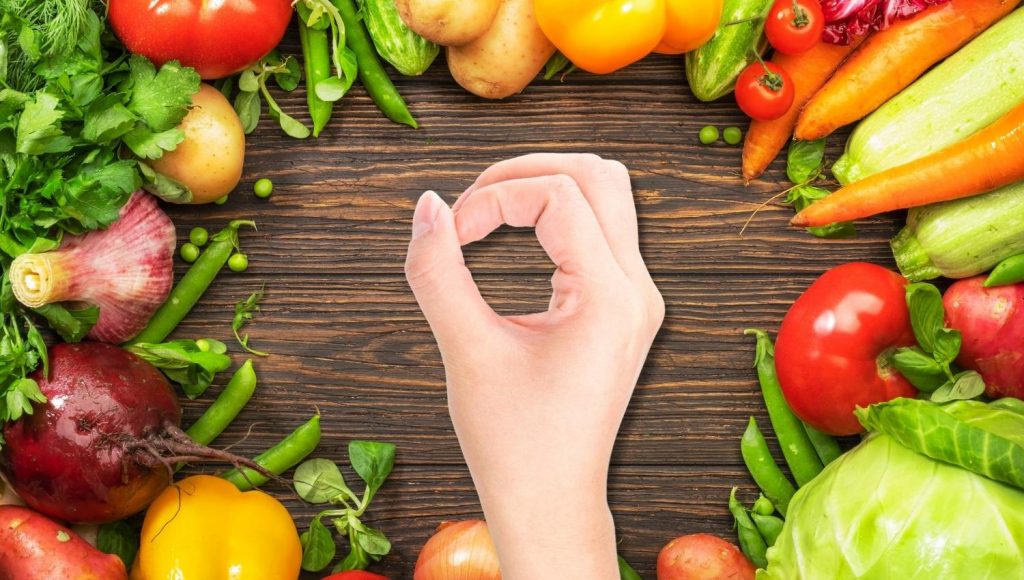
Do vegetables have collagen?
Vegetables do not have collagen because collagen has a unique amino acid profile only found in animal tissue and bones. This also means that grains do not contain collagen. This may be contrary to some sources you’ve maybe read. But remember, we’re not talking about foods that boost the production of collagen — simply foods that contain actual collagen. Big difference.
However, we do live in a super high-tech world and manipulate everything so it is worth noting that scientists do have the ability to ‘rearrange’ the amino acid profile of hemp, pea, and soy protein for example to be the same profile and sequence as animal collagen.
Genetically modified soy collagen anyone?
But back to fruit, veggies, and not animal food. They might have vitamins and minerals that are associated with our body’s manufacturing process of creating collagen, but that’s it. Plants don’t have collagen and there is no such thing as a vegan collagen supplement. Any article that says to eat berries, citrus fruit, or cashews is taking a huge leap by saying they’re foods with collagen in them.
Final thought: Eat whole unprocessed foods first, supplement second
Remember what I said about bone broth? If I lost you earlier when I suggested eating kidneys and eyeballs, then here’s that statement again:
I would much rather someone drink bone broth every day than take our supplement.
— Charlie
Founder
Whole unprocessed foods will always dominate and be superior to manufactured supplements. They are better. Period. So, if you’re walking around asking yourself what foods have collagen, the answer is simple: Bone Broth, certain Organ Meats, Meat on the Bone (including Cartilage, Skin, Bone, Joint Material), and Eggs.
Start with food.
BUT, if you don’t want to be a strict bone-on-meat carnivore, eat cow hearts, poach eggs, or drink broth every day — that’s exactly why we have an awesome multi collagen supplement. Here’s how you can take collagen powder (you’ll find more than a dozen different ways), and yes, nearly everyone of all ages can take collagen.
Feel good about taking it, your body deserves it and you will thank us when you’re well into your ‘senior’ years still playing with grandkids and beating your kids at sports.
You’re welcome, Mom & Dad.
